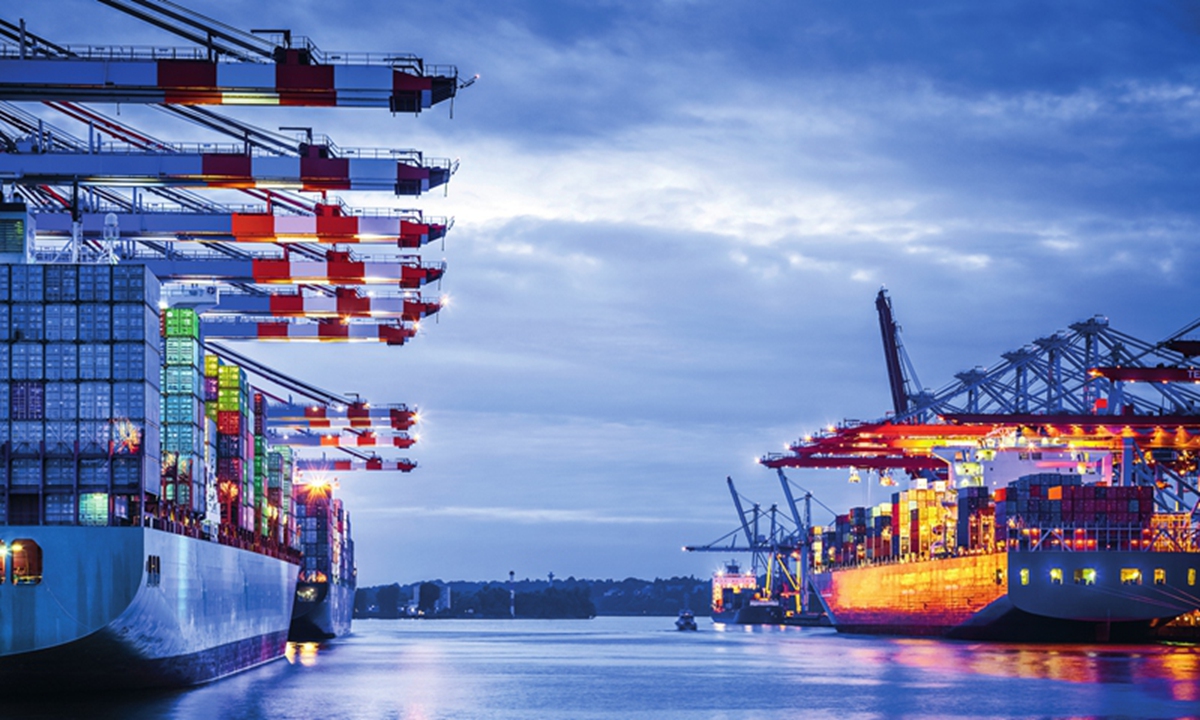China must focus on economy, not to be swayed by US games
Source: Global Times Published: 2020/7/23 20:06:47

File photo
At a time when the US is actively pushing its allies to ramp up confrontation with China, it is more essential than ever for China to ensure that its economic development progress won't be derailed by diplomatic tensions intentionally orchestrated by the White House.
In recent years, China has been promoting a domestic consumption upgrade while seeking cooperation with the outside world to resolve its trade imbalance issue. Such an approach could still apply in the post-pandemic era.
As the global economy has been badly impacted by the coronavirus pandemic, shrinking demand is likely the main downside risk to world economic growth this year. Besides, the global economy has already entered a buyer's world that is dominated by purchasing power and markets. This will become even more evident in the aftermath of the COVID-19 pandemic.
At this juncture, if China can adhere to its opening-up policy and improve home consumption levels, the country will create a more favorable economic and trade environment to counter the pressure from the politicians at Washington.
There is no denying that the coronavirus outbreak hit China's economic activity in the first quarter, but the economy quickly rebounded in the second quarter, following a courageous mandate to lock down the whole country for over a month to contain the killing disease.
And the latest trade data showed that the outbreak hasn't affected China's willingness to buy more from the world. China's imports totaled 1.18 trillion yuan ($168.8 billion) in June, representing gains both month-on-month and year-on-year, according to the General Administration of Customs.
With continuous growth and rising urbanization levels, China's influence and potential as a buyer's market cannot be ignored by any country. In 2019, the country's retail sales of consumer goods rose 8 percent to 41.2 trillion yuan, according to the National Bureau of Statistics. Consumption has been the main driving force of the country's economic growth for six consecutive years, contributing 57.8 percent to GDP growth during the period.
China's increasingly affluent middle class and the market size will benefit all countries that share partnership and win-win to prosper their economies.
Over the past several decades, Chinese trade has expanded at a breakneck pace. In 2018, China accounted for 11.37 percent of global imports, accounting for a large proportion of exports from Australia, Brazil, Japan and South Korea.
Moreover, some experts in academic and business circles have suggested that China could make efforts to increase its imports to the same level as its exports. If China could achieve balanced imports and exports in the future, it would definitely have a major impact on the global industrial chain and trade.
We believe China has the will and potential to shoulder more responsibility in driving the world economy to grow. The international situation ahead may be challenging, but it is essential for China to always focus on its own issues, and not allow political factors to disrupt its pace of economic revival.
Newspaper headline: Beijing’s focus on economy not to be swayed by US
Posted in: GT VOICE